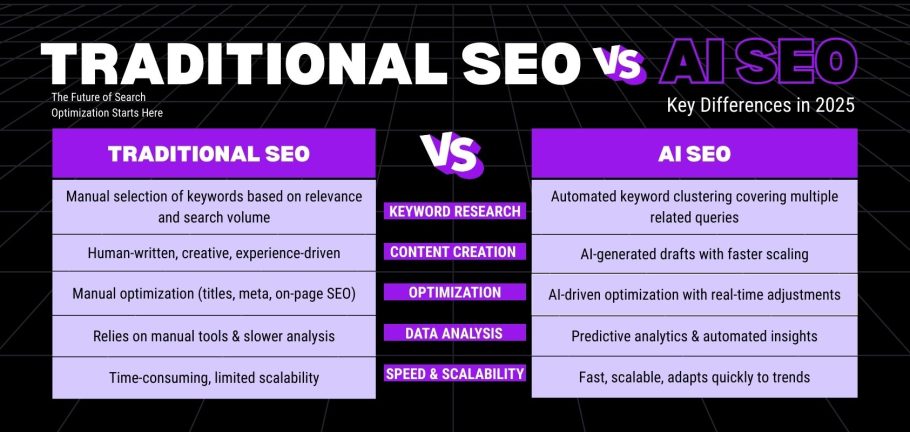How AI Agents Are Reshaping SEO: A Practical Guide to Future-Proof Optimization
AI-powered search agents are fundamentally changing how websites rank and get discovered. Learn how to adapt your SEO strategy for an era where traditional keyword optimization alone no longer guarantees visibility.

The Shift: From Keywords to Context
Search is evolving faster than many digital marketers can adapt. AI agents—sophisticated systems that understand intent, context, and semantic meaning—are replacing simple keyword matching as the primary ranking mechanism. This shift demands a fundamental rethinking of SEO practices that have dominated the industry for two decades.
Traditional SEO focused on keyword density, backlink quantity, and on-page optimization signals. These tactics still matter, but they're no longer sufficient. AI agents prioritize content relevance, topical authority, and user intent alignment. A page stuffed with keywords will underperform against one that comprehensively addresses a user's actual question, even if that page uses fewer exact-match terms.
Understanding AI Agent Behavior
AI agents process information differently than traditional search algorithms. They evaluate:
- Semantic understanding: What is the content actually about, beyond surface-level keywords?
- Entity relationships: How does this content connect to related topics and concepts?
- User intent prediction: What does the searcher really want to accomplish?
- Content quality signals: Is this authoritative, original, and comprehensive?
This means your optimization strategy must shift from targeting individual keywords to building topical clusters and demonstrating expertise across related subjects.
Practical Adaptation Strategies
1. Build Topical Authority
Instead of optimizing isolated pages for single keywords, create interconnected content that establishes your site as an authority on broader topics. Link related articles together, use consistent terminology, and develop comprehensive guides that cover multiple angles of your subject matter.
2. Prioritize User Intent Over Keywords
Research what questions your audience actually asks, not just what keywords they search. Use tools that capture conversational queries and long-tail variations. Structure your content to answer these questions directly in the opening paragraphs.
3. Enhance Content Depth and Originality
AI agents reward substantive, original research and insights. Thin content, scraped material, and generic overviews will struggle. Invest in:
- Original data and research
- Expert perspectives and interviews
- Detailed case studies and examples
- Comprehensive guides that go beyond surface-level information
4. Optimize for Multiple Content Formats
AI agents increasingly index and rank diverse content types—videos, infographics, podcasts, and interactive tools. Don't rely solely on written text. Diversify your content portfolio to capture visibility across different search modalities.
5. Strengthen Entity Recognition
Ensure your brand, products, and key topics are clearly identified and consistently referenced. Use structured data markup (Schema.org) to help AI agents understand what your content is about. This is particularly important for local SEO and industry-specific searches.
Technical Foundations Still Matter
While content strategy has shifted, technical SEO remains critical. AI agents still require:
- Fast page load speeds
- Mobile responsiveness
- Clean site architecture
- Proper XML sitemaps and robots.txt configuration
- Secure HTTPS connections
These fundamentals haven't changed—they've simply become table stakes rather than differentiators.
The Measurement Challenge
Traditional metrics like keyword rankings are becoming less meaningful. Instead, focus on:
- Organic traffic volume and quality
- Click-through rates from search results
- User engagement metrics (time on page, scroll depth)
- Conversion rates from organic traffic
- Brand visibility across AI-powered search interfaces
Looking Forward
The transition to AI-driven search isn't a one-time adjustment—it's an ongoing evolution. Successful organizations will treat SEO as a continuous learning process, monitoring how AI agents interact with their content and adjusting strategies accordingly.
The fundamentals of good content remain unchanged: solve problems, provide value, and build trust. But the mechanisms by which search engines discover and rank that content are transforming rapidly. Adaptation isn't optional; it's essential for maintaining visibility in tomorrow's search landscape.



